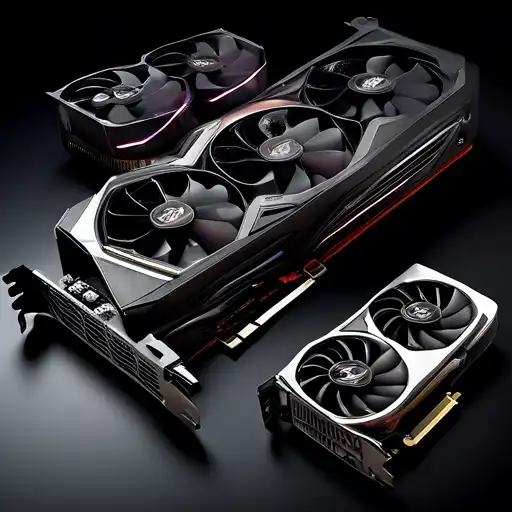Introduction to Choosing the Right GPU for Gaming
Choosing the right GPU (Graphics Processing Unit) is crucial for an optimal gaming experience. The GPU is the heart of your gaming PC, responsible for rendering images, animations, and video for the computer's screen. With so many options available, selecting the perfect GPU can seem daunting. This guide will walk you through the key factors to consider when making your decision.
Understanding GPU Specifications
Before diving into the market, it's essential to understand the specifications that define a GPU's performance. These include:
- Core Clock Speed: Measured in MHz, this indicates how fast the GPU can process data.
- Memory: The amount of VRAM (Video RAM) is crucial for higher resolutions and textures.
- Memory Bandwidth: This affects how quickly the GPU can access the VRAM.
- Shader Cores: More cores mean better performance in rendering complex scenes.
Matching the GPU to Your Gaming Needs
Not all games require the same level of GPU performance. Consider the types of games you play:
- Casual Games: Less demanding titles can run smoothly on mid-range GPUs.
- AAA Titles: High-end games require more powerful GPUs for optimal performance.
- VR Gaming: Virtual reality games demand top-tier GPUs for a seamless experience.
Budget Considerations
Your budget plays a significant role in the GPU you can afford. Here's a rough guide:
- Entry-Level: Suitable for casual gaming and older titles.
- Mid-Range: Offers a good balance between price and performance for most gamers.
- High-End: For enthusiasts who want the best performance, regardless of cost.
Future-Proofing Your Purchase
Technology evolves rapidly, and today's high-end GPU may become tomorrow's mid-range. Consider:
- Upgradability: Ensure your PC can accommodate future GPU upgrades.
- Support for New Technologies: Look for GPUs that support the latest standards like ray tracing and DLSS.
Conclusion
Selecting the right GPU for gaming involves balancing performance, budget, and future needs. By understanding the specifications and considering your gaming habits, you can make an informed decision that enhances your gaming experience. Remember to also consider the power supply and physical size of the GPU to ensure compatibility with your PC.
For more tips on building or upgrading your gaming PC, check out our ultimate gaming PC guide.
